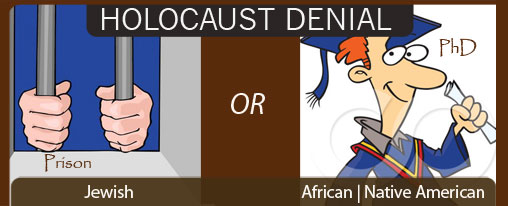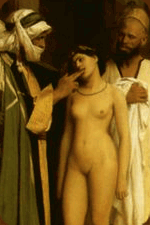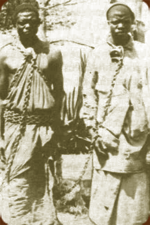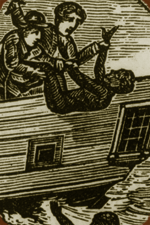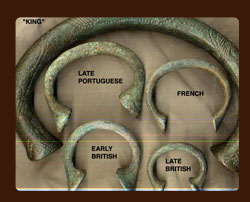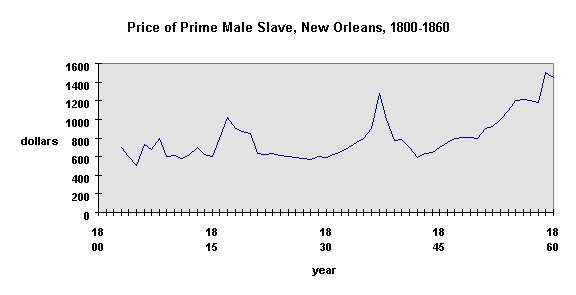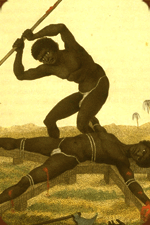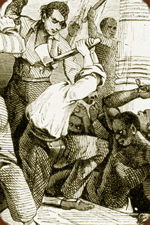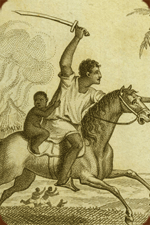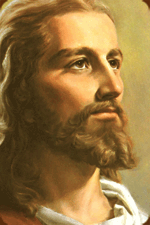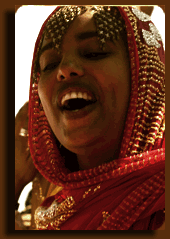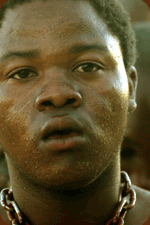

- SLAVERY
- >>African Holocaust
- >>Slavery in America
- >>Arab Slave Trade
- >>Jewish Slave Trade
- >>Slavery Revolts
- >>Modern Slavery
- >>Mental Slavery
- CULTURE
- >>Culture Complex
- >>Scripts of Africa
- >>Rites of Passage
- >>Kwanzaa
- >>African Agency
- >>Language & Africa
- >>Music and Dance
- IDENTITY
- >>African Race
- >>Consciousness
- >>Educating a Child
- ANCIENT AFRICA
- >>African Kingdoms
- PAN-AFRICA
- >>Business & Africans
- >>African Cinema
- >>Art of Revolution





 |

- African Kings and Queens
- African Marriage
- Consciousness
- White Supremacy
- Scripts of Africa
- Business & Africans
- ICC & Africa
- African Fundamentalism
- Capitalism or Socialism
- Facts About Africa
- War and Religion
- Death of African Languages
- Garvey Economics
- Cabral Theory
- NGO and Development
- Garvey Legacy
- Willie Lynch Hoax
- Malcolm OAAU
- Ethics of the Reparations
- Afrocentrism Pseudohistory?
- Marley Film Review
- Abolition and Wilberforce
- Black Panther Critique
- Jews and Slavery
- Gay Rights
- Failure Of African Leadership
- Capitalism or Socialism?
- Female Genital Mutilation
- Failure to Engage
- Libya Invasion
- Dubois: Souls of Black folk
- Slavery in America
- Amilcar Cabral
- Agency and Africa
- Mis-Education of the Child
- African Revolt
- The Flag of African Cinema
- The Politics of Liberation
- White Supremacy
- The Horrors of 500 Years
- Africa and the Rise of Islam
- Why Kwanzaa
- Seen But Never Heard
- African Classical Music
- South Africa: 10 Years On
- Music and Dance in Religion
- White Abolition of Slavery
- A Threat to Black Studies
- Art of Revolution
- African Influence in Barbados
- Origins of Voodoo
- Black Out White Wash
- Ethiopian Slave Trade
- Darfur Report
Until lions tell their tale, the story of the hunt will always glorify the hunter
– African Proverb
Power concedes nothing without a demand. It never did and it never will
– Frederick Douglass
The most pathetic thing is for a slave who doesn't know that he is a slave
– Malcolm X
Every man is rich in excuses to safeguard his prejudices, his instincts, and his opinions.
– Ancient Egypt
What kind of world do we live in when the views of the oppressed are expressed at the convenience of their oppressors?
– 'Alik Shahadah
We are not Africans because we are born in Africa, we are Africans because Africa is born in us.
– Chester Higgins Jr.
Leave no brother or sister behind the enemy line of poverty.
– Harriet Tubman

If the future doesn't come toward you, you have to go fetch it
– Zulu Proverb
If we do not stop oppression when it is a seed, it will be very hard to stop when it is a tree.
– ' Alik Shahadah
If we stand tall it is because we stand on the shoulders of many ancestors.
– African Proverb
Injustice anywhere is a threat to justice everywhere.
– Martin L. King, Jr
The greatest threat to freedom is the absence of criticism
– Wole Soyinka
No longer must the African genius be trapped between bureaucracy and mismanagement
– Alik Shahadah
How can I turn from Africa and live?
– Derek Walcott
For far too long, a majority of Africans have been indifferent to misrepresentations about who they are
– Childo Nwangwu
We cannot have the oppressors telling the oppressed how to rid themselves of the oppressor
– Kwame Ture
It makes no difference what language Africans speak if our first language is not Truth
– Hilary Muhammad
|
|||||||||||||||||||||||||||||||||||||||||||||||||||||||||||||||||||||||||||||||||||||||||||||||||||||||||||||||||||||||||||||||||||||||||||||||||||||||||||||||||||||||||||||||||||||||||||||||||||||||||||||||||||||||||||||||||||||||||||||||||||||||||||||||||||||||||||||||||||||||||||||||||||||||||||||||||||||||||||||||||||||||||||||||||||||||||||||||||||||||||||||||||||||||||||||||||||||||||||||||||||||||||||
The other ploy is statistical downsize serves to lessen the volume of Africans impacted by enslavement (Holocaust denial). There is also a linguistic tone which takes away the humanity of African people by referring to enslaved people as "slaves" and "black African slaves." It reaffirms Africans as history's slave pool; mere commodities, black bodies without history and higher destiny. This orientalism is evident in most Eurocentric studies by celebrated white historians. The authentic study of Africa is often masked with political or emotional objectives; whether these objectives are Islamaphobic, anti-African, European supremacy, Afrocentric, "Black" supremacy or a Zionist agenda [2] Because of the contemporary implications it is a deeply political discourse with no clear "good vs. bad" guys, but competing agendas. It is critical to deal with these agendas in seeking any sort of authentic and balanced understanding of the Maafa.
It is obvious that Afrocentrics and other pro-African groups play binary blame games, while denying African culpability and agency. Their objective is to make Africans the victims, and even when Africans are accountable for horrendous acts, they still place responsibility outside of Africa (it was the foreign religions and culture). But this neglects and tramples African agency, because it reaffirms the child-like canard of African people: incapable, and impressionable. Africans are not impressionable children who get "influenced" by everything that blows into Africa. It comes in the box of "consciousness," but in reality this attitude of "they did this to us" only reaffirms Arab and European superiority; to have so much power to control every last action Africans have ever done. But Africans, as full an uninfluenced people, did engage in the African Holocaust; and are fully, although not equally, responsible for their partnering with the Atlantic and Arab slave system. On the other side, almost every single European-run historical discourse, led by the likes of John Thornton, attempts to reduce the impact, severity and legacy of the African Holocaust. Normalization white-washes slavery into "everyone did it; it is part of world history." "Africans sold Africans to Europeans so they are just as guilty." "Without African involvement they could be no slave trade (Thornton)." And while that may be true, it does not absolve the continued benefits Europeans have gained and continue to gain from enslavement of African people. No other nation still inherits the wealth of their former slaves like the West. If a young girl is sold into prostitution by her own parents, the pimp must still pay for the suffering he caused the young woman. He can't simply say, 'Her parents made a deal with me, so you should stop the blame game.'"[3] The European controlled slave trade was not some private venture divorced from state and church. That state and church was a representation of "the people." It represented the wealth and security of Western nations. So the vast majority of Western Europeans and their descendants global profited from slavery—a privilege people of European ancestry still enjoy at the expense of African development. And yet some still suggest to avoid discussing slavery to avoid hurting their conscious. The total percentage involvement and profits from that involvement gained by Africans who engaged in selling other Africans is infeasible small. It accounts for maybe 1% of the billable slave hours in the working life of a first generation enslaved African. It accounts for 0% of the billable hours for the many generations of Africans enslaved on European owed plantations, and the years of exploitation after emancipation. How then are we calling it a partnership of equals?
This issue of emphasis creates a peculiarity that seems unique to Africa, but all over the world, in every single conflict you will find weak or greedy members of that community who side with oppression—why is Africa any different? What is true for the African is 100% true for the Jew. So the biggest manipulation is not so much in the facts, but in the weight or emphasis of "they sold each other." Also, most enslaved people in the West were in that state for all of their lives by European process, not African. Those who were captured in Africa were touched by the African component briefly-- and never again in the history of their enslavement. African involvement, while shameful, was was hardly a partnership in Holocaust, beyond the initial capture and sale. And Europeans also have this tradition of underplaying their role in direct capture. But it is a fact in the early days, and especially in the later (peak) days of the slave system, Europeans directly procuring captives. (Bailey 2005) As unethical as it sounds, no degree of slavery in Africa would have destroyed Africa as a continental political force. When African talent started being exported out of Africa, is when African underdevelopment, from a political-economic and social perspective, became an issue.
as this Diaspora also represent the absolute bottom of every social-economic graph. All of this is necessary to show the backdrop to the attitudes and motives for the "new" focus on Arabs. And when we look at the principle authors of this "new" study we see the hands of people like Bernard Lewis (an ardent orientalist, and Zionist) as the prime authority even Afrocentrics are reading. There is no escaping African culpability in the "destruction" of Africa. The failure to form unity around spheres of interest when faced with a formidable foe is a failing Africa cannot escape. Greed and corruption continues to adversely poison the hope of Africa, even today. And no degree of historical revision can wash out or dilute aspects of African partnership in the African Holocaust. But we should also balance the exception vs. the rule vs. a phenomena. [5] Yes, people did sell their family into slavery, yes kings did invade and use other ethnic groups for a slave pool. But it is inaccurate to highlight this as the African norm (as Dr. Akurang-Parry says). Nor should we confuse a phenomena as the natural way in which African people lived for millennium. We should not make Africa a monolith, and ignore other forms of social inequity and violence in native African communities, which predate any influence of Arabs and Europeans. Africans, like people all over the world have the same human nature, which can be both creative and loving, as well as destructive and inhumane. But it is utterly dishonest to compare the capitalist-driven actions of Western Europeans, with the mainly duress-driven actions of a community being forced to sell their neighbors (or even their own children) into slavery for fear of the entire family being sold. To compare these circumstances as equal is moral reprehensible. What happened in Africa was a Holocaust, and victims were not limited to those being shipped across the Atlantic to European plantations or the salt marshes of Iraq— A large percentage of the trauma was experienced inside of the slaving zones. Why do we study the past? To learn from it and set up precedents for curbing patterns which produce inequity. And to reproduce patterns and habits that produce enlightenment and progress for all of the Earth (humanity and nature). Every doctor understands why the epidemiology is critical to modern medicine; prevention and cure rest on successful analysis of the problem.
Almost every incident of conquest involves a stronger technological people subdued and exploiting a "weaker" or less developed technological people. That is the one most profound observation and pattern we can grasp from history. The consequences of that conquest have never stopped, the reverberation is heard around the global in all areas of conflict. Understanding history, as Jared Diamond states, is more often the tool used to interrupt the negative outcome, than to repeat it. Slavery today, as slavery then has the common theme of weak vs. strong, rich vs. poor. That personality has never altered and every time there is a gross imbalance it is the breeding ground for all forms of exploitation. It then seems a correct approach would be also to deal with the breeding ground of slavery. It is far more than a Black people vs. White people debate. In Cameroon the "weaker" peoples are exploited by the "stronger" people. So this pattern of oppression's commonality needs to be addressed. Garvey clearly articulated this when he said :
All humans are the same: anyone cut with a knife will bleed, anyone left without cultural identity will fit the Willy Lynch theoretical model. The only factor in the degree of impact is culture. This is why some people experience a Holocaust and come out even stronger than they went in. A Holocaust must therefore be looked at comparatively, depending on three key factors: the heat of the fire, duration, and their cultural integrity. Unfortunately where Africans are concern the fire, or nature of the Holocaust, was hot, the duration was long, and African cultural integrity, due to disunity, was weak. Everyone calls everyone else backward, that is human nature, it has nothing to do with religion, but moreover with people (religion only follows the pre-existing trends like a hand shapes a glove). The more powerful someone is, the more agency they have to make the other feel the pain of otherness. The Ewe were targeted for slavery because the Ewe did not have the culture or religion of the Akan, they became a slave pool because they were the "other"; had weaker gods in the eyes of their captors—slavery was therefore "religiously sanctioned." This has nothing to do with Islam vs. the other, or Christianity vs. the other, or even European vs. the other. This is the history of human nature from time immoral. The other is in parenthesis in the Old Testament; thou shall not kill (members of my own tribe). It was with us in the beginning of humanity, and if not careful will follow us to the grave of humanity. The Osu caste system in Nigeria and southern Cameroon, can be traced back to an indigenous religious belief system of the Igbo nation. Some Igbo traditionalists hold that the Osus are people historically owned by deities, and are therefore considered to be a 'living sacrifice', an outcaste, untouchable and sub-human. The was true in Ethiopia; the very name Falasha means (foreigners/exiles) was given to Ethiopian Jews by the Emperor Yeshaq in the 15th century. In some slave trading African societies, East, North and West, the conquest in the temporal was a mirror of a divine conquest. Zulu means "The people of the sky" vs. other people who are less "chosen" and because of that status were subject to a vicious campaign. "The Other" is a human problem, fanned by ignorance and binary accusations. The historical record must not be washed away, we must call the name of those who engaged in the apex of the trade to account for their historical genocide. But at the same time, balance must caution anyone of perceptually blaming Europeans and Arabs, while skipping the internal complexities, weakness and failures still plaguing African communities. Because it does not bring a complete solution to the roots of slavery and inequity; the roots of war and hate. HOLOCAUST – CRIMES AGAINST HUMANITY
Now the act of taking an African from their home by force and violence is a crime, and in that crime a minority of Africans played a major role. However, that is one set of crimes and each incident re-occurred over the centuries destabilizing local communities’ development potential. And without the assistance of any Africans we then come to storing Africans in dungeons and subjecting them to all manner of unspeakable horrors, including rape, in places like Goree or El Mina. All of this constitutes yet another set of human rights violations. Loading and packaging human beings on a ship like sardines and subjecting them to living and breathing in their own urine and excrement is another set of crimes against humanity (no African from the Motherland are guilt of that). Taking them and selling them off like chattel is yet another crime, dehumanizing them and enslaving them on the plantation is yet another set of crimes against humanity. To disrupt the culture, names, language and religion of those captive people is yet another crime against humanity. To exploit to build the empires of the West for over 300 years; torture, persecute dehumanize them is yet another crime. To finally release them from their Holocaust to be subjects and victims of all forms of racism up until the 60’s is yet another crime. And finally to continue to enjoy the fruits of that legacy, deny and oppress them into the contemporary moment is yet another crime against humanity. And still we see every generation of African inheriting the terrible legacy of self-hate and potential inhibition created at that instance 500 Years ago in Africa. Numbers (Quantity) and Duration and Nature (Quality of oppression) are three unique factors in the African Holocaust. There is no statute of limitation if the institutions that profited from slavery are today still in existence rich and better off for that terrible trade in flesh. It is only when we understand the African Holocaust in these terms that we realize what is unique about it. There are no comparisons in human history. CAPITALISM AND SLAVERY Often the emotion view of slavery sees racism as the principle motive for the Atlantic Slave Trade. However, the mere existence of a capitalist ideology will by default create degrees of servitude. Capitalism looks at numbers and has no moral consideration. It has a relentless dedication to reduce liabilities and increase profits. The numerical capitalist heaven is zero-expense. Slavery was capitalisms best system for achieving a number as close as possible to zero. In this cold calculation slavery was inevitable once new territories were found and sugar cane and other products added to the markets of Europe. It has been often argued, by some scholars, that slavery did not end for moral reasons. There was no new awakening in the capitalist heart for the inequities which besieged the African slave. The profitability diminished and new alternatives such as sharecropping had brighter lights. It is in the shifting economics of industrialization that slavery as a system began to lose its shine. Again capitalism looked at the numbers and found that between; feeding, clothing and sheltering Africans, as well as quelling rebellions – it was far cheaper to end slavery. And with the rise of Western consumerism all of those ex-slaves became the new clients of their former slave masters. Beyond corn fields, and cracking whips slavery has a dark and fastidious legacy which is rarely examined holistically. And this legacy goes a long way to explaining the social condition which constitutes an African crises across the globe. Most notable of this is the global racist perception and value of African people. It explains the fragmentation of all areas of people relationships (family, business, humanity) between African people. It explains the inferiority complex which no Jewish person inherited from being in the Nazi death camps. Because in the camps of Poland and Germany Jews were still persecuted as a human being (a member, though hated, of humanity - not a sub-human or beast). They died in the gas chambers with a knowledge of self, of Torah, of history and culture. In the Americas the African was exploited for over 400 years as a common beast, denied from history and humanity. The African in slavery died without ever even knowing he or she was a full member of the human race. This Jewish sense of identity goes a long way to explaining why Jewish people today are able to draw strength from their tragedy while the African-Diaspora still continue to be victims of their Holocaust.
The Jewish nightmare resonates so much that they have shared their pain beyond their cultural group: The image of suffering is iconized in the Jewish holocaust. We can see a film such as "Freedom Writers" where mischievous "ethnic minority" teens are told a Jewish story as an example of "real" suffering." Why would African-Americans with the most tragic history in America (equaled only by the Native American Holocaust) need to look to European Jews for a story of tragedy? The answer is simple African-Americans are not agents of these stories which impose themselves at the expense of the African narrative. Even in South Africa (which has no history of Nazi extermination) you will find a Jewish holocaust museum in every major city. Thats not the fault of any Jew, and we must respect their dedication to their holocaust study. But where is the African Holocaust museums? Where is the great monuments built to honor the millions of Africans whose bodies lie at the bottom of the Atlantic? Where is the Pan-African centers for teaching the legacy of Du Bois, Garvey and Malcolm? That speaks only to a mental defect which is the greatest legacy of our African Holocaust.
See [Mental Slavery] When we really understand slavery, it is more than a ball and chains 150 years ago. More than the film Roots, of lives on a plantation exposed to inhumanities. The most violent product of chattel slavery is mental slavery. It expresses itself by creating, among other things, dependency and an inferiority-complex. It infects every concept from notions of beauty, values, and even the preference of "renting" over the prospect of "buying." Many Africans, especially in the Diaspora, continue to wear their wealth on the outside (shoes, clothing, cars) while other groups wear their money on the inside (educational development) first. Mental slavery, also impacts African discernment. Because failure to know oneself also means failure to identify self-interest it is often in this confused state the offense of oppression cannot be located in the minds of the mental slaves. It is no wonder they are given to attack the seat of their own liberation for minutia issues.
Investment in education was futile in slavery and still this legacy continues. Mental slavery also impacts most of all value of self, value in seeing African stories. How else can we explains why the Jewish story in film and print is everywhere in the world despite Jews only being a World population less than the city of Lagos. And why is it the story of Africa (more than 1 billion people) is rarely told, and when it is told it is at the hands of European agents. Some Africans are so mentally confused that they are active agents of whitewashing and escaping from slavery, they will state "I am sick of hearing about slavery the past is the past." The African voice, the African woman and man, the African relationships and African films and media have no value in the minds of those who have no value of self. And this pervasive legacy washes not only this contemporary African generation, but future generations waiting to be born. [500 Years Later] and [Motherland]. See [Mental Slavery] STUDYING AFRICA | TYPES OF 'TRADE' It was once believed that the Atlantic slave trade was a largely self-contained phenomenon, it is now acknowledged that this slave trade is part of a much wider picture, which includes traditional African slave systems and the Arab slave trade. At various stages in their history conflicted and complemented each other. There was also an evolution from one type of slavering into another; as happened inside of the African slave system where captives where a casual consequence of national warfare evolved into a reason for warfare. We must identify the different levels of enslavement in the historical narrative of Africa. Some where client-supplier, others were consequences of the overspill from internal polities clashing. Although the internal African trade became the trade which procured captives for Europeans and also Arabs, it is a distinctive trade with unique features, and moreover distinctive consequences. Economically the growth that should have been experienced in Africa, from African human resources, was experienced in the West - as opposed to in Africa. The primary African groups involved in procurement for European interest became particularly adept and brutal at the practice of enslaving where the Oyo, Benin, Igala, Kaabu, Asanteman, Dahomey, the Aro Confederacy and the Imbangala professional war bands. ("Atlantic Warfare", Thornton) One key difference between Africans as agents for Europeans, and the domestic internal slavery was the level of brutality associated with procurement. Below is a list of zones of enslavement and types of slavery:
No one traveled all the way into the Congo Basin to procure Africans because of some deep hatred of African people. Slavery has a sociological factor and will always prefer to enslave someone not related to the community (any definable group with shared self-interest). When this logic is expand out it explains slavery of the "other." if I am Fulani then the other is Mandingo, If I am English then the other maybe Irish. The more different the better. Any perceived notion of difference became the ideological backdrop to what would become modern racism. "They are not as advanced as us", "They do not believe in the same god as us." "They are deserving of enslavement."
From surf to sultan was a feature of both the native African systems as well as Arab systems of slavery. Mazrui, Hunwick both make the argument that Arab slavery, unlike the European counterpart, used enslaved people's in their armies and thus created a large powerful military who could one day capture power. What made the European trade in enslaved Africans particular was it deliberately targeted Africans, for most of its duration. And part of the legacy of this was the natural association of Africans as inferior: Slavery in the West was by virtue of your skin color, and while religion usually override this in the Arab system (being Muslim and Africa might save you from being enslaved: for example Somalia was not supply zone -- as part of the Islamic world Somalis were at least nominally protected by the religious tenet that free Muslims cannot be enslaved. Although sometimes the conquering group would just saw the target Muslim group they were guilty of shirk ( شرك širk) thus taking them outside of Islamic protection), in the West no mitigating factor could override race. So much so that a European could parent children with enslaved African women and still could imposed the most horrendous crimes upon his own offspring without consideration and mercy: whipping them, torturing them, selling them for profit. So corrupt and vile was the systems of slavery that it poisoned natural parental bonds, where a slave master could rape his own daughter and go to church on Sunday without seeing the gross immorality.
In popular circles there is a "Who sold us into slavery?" debate that has been raging for years. It however has done little to advance a pure understanding of the African reality. It has always been used to divide African loyalty, and foster further distrust in Pan-African communities: by targeting certain countries, ethnic groups or religious groups. If African people are to heal and come to terms, and hence grow and reach a higher potential, it is impossible to avoid this issue for it will stymie Pan-African development. Understanding this notion of "Selling out" is critical aspect of the African Holocaust. Now who did the "selling out" is not a binary Diaspora vs Continental issue. The "selling out" personality was on the boats that carried Africans to the New World, it was on the plantations, it followed its way into current leadership in Africa and the America's: It lives in the heart of all those who try to fragment Africans by location, tribe and religion. It creates distrust and suspicion around great works, and leads Africans into nothingness rather than glory. It tries to suggest patterns of "selling out" to create distrust to further the political agenda of certain groups: "Oh it was the Christians that sold us out." But the historical record clears both Islam and Christianity as the primary agent involved in "selling out" Africans to the Atlantic or even Arab slave trade. So what we are left with is the 100% agency of African people: Africans as free people, uninfluenced doing Holocaust. Ethnic groups who may have engaged in selling other groups, at later stages as the system got out of control, may have themselves been taken to the New World. So there is zero point in binary Diaspora vs Continent blame games. It is impossible to point to West Africa and say "they sold us out". It was a human personality that betrayed truth and justice when under duress, there is a more worrying and insidious human personality of greed and myopic ambition that has found its way through history into the current African leadership, that sells it resources and condemns its people to poverty to service Western designs, which reward this betrayal with trinkets. Who sold Africa out is the personality of greed and selfishness, and moreover disunity. The failure of African people to purge the "devil" within. It is not the people of Ghana, or the people of Nigeria, The Muslims, or the Christian converts, that was the sole culprit, because this generalization does not account for the traitors on the plantations of Louisiana. It does not account for the overseers who made deals to usurp African rebellion. And it goes soft in dealing with the flaws inside of ATR that were the biggest justification for enslavement. It also generalizes targeted African groups who remained in Africa but were equal victims of enslavement. WHY AFRICANS A lot of research has revealed that Africans as a group were suitable for enslavement due to physical endurance; resistance to disease, the advantages of procuring large numbers from slave pools. But there was something more profound than that, that made Africans ripe for enslavement. A failure of people of Africa to form defenses around spheres of interest. And that started, for what ever reason, because of a failure to understand continental interest above national interest. And this is tied hard and fast to notions of identity. Through no fault of African people in antiquity, since they had no reason then to have a Pan-African identity. However it is certainly an ongoing issue in Africa today, where blame can be laid squarely with contemporary Africans and no one else. What Africans are still not getting, is, never let "internal" squabbles or confusions around difference (religious, ethnic, political, etc), allow a foreign aggression or agendas in Africa: Some term this divide and conquer, but steps to counter it are fleeting, especially when those that advocate unity are also busy causing disunity. So still the lessons of history have not be learned The failure to have a clear hierarchy of agendas allowed the African Holocaust. The African Holocaust affected all Africans, and required all Africans to close ranks around this issue. However. the issue of a pan-African concern was secondary, or non-existent to a "tribal" concern. The myopic acceptance of partnerships with Europe to rid one of a local enemy still work then and now in African politics. And even with hindsight this pattern of divide and rule is stated, but not fully understood. Africans will always have to deal with each other and conflict is inevitable, but in the hierarchy of interest, defense of the Motherland today must reign supreme. AFRICAN IDENTITY IN ATLANTIC AFRICA
When we study the dilemma which created a supply of slaves for the Western markets we see that the primary process was warring Africans. While some historians consider these merely "Slave Raids" it can be shown that casualties would have been experienced on both sides and thus making such activities more akin to warfare. Even if that warfare was against a "weaker" nation who served as a target group for procuring captives. The long standing temptation is to paint all these groups as African fighting Africans. However, in this historical period there was no African identity. People in 15th century Africa never heard of "Black people" as an identity. While they had knowledge of self from an internal perspective, that knowledge of self lacked a relationship to other African groups in the broader sense, especially when confronted with the arrival of Europeans. And that is key because being proud to be Zulu, for example, but seeing a Xhosa as different is a narrow understanding of 'self.' And this failure made it easy for identities, whether ethnic or national, to be used as a opportunity for exploitation. And this is not unique to Africa, the same thing happened everywhere the European went in his expansion where he met different ethnic groups. Perhaps this is also the largest factor which added the European interest in Africa, lack of a singular identity. The Aro Confederacy and the Imbangala cult, all had strict conceptions of what made an individual eligible for enslavement. Among such criteria were constructions of gender, definitions of criminal behavior (which expanded and corrupted as demand increased), and conventions for dealing with prisoners of war. The Serer for example had a policy of not keeping their enemies as slaves, so they killed them. (Martin Klein) While in other communities various regulations govern their POW. All of this was never static as duress increased from the consequences of the Atlantic slave machine. How did you become enslaved? Especially in the beginning people would have been debt slaves, or religious violators, people who were political rivals, or general undesirables (Nehusi). But as the trade progressed that internal supply pool from within ones nation was limited. The best source of new captives were prisoners of war; bought, traded or procured directly by violent warfare. The ethnic groups that were most frequently transported across the Atlantic came from a relatively small ethnic pool. [12]
Groups most active in procuring captives where:
CONSEQUENCES OF THE SLAVE 'TRADE'
The dilemma on the continent was either you sell your neighbor or they would be forced to come and sell you. Because of disunity, the European was able to exploit every social weakness to procure more victims. Indigenous systems had ways of dealing with prisoners and these systems became corrupt to a point where all crimes became punishable by enslavement. In Atlantic Africa during two cycles created a dangerous loop.
The entire Diaspora population was in free-servitude and therefore it is economically and socially impossible to compare the few African slavers verses the national project of Western Europe, and the Americas. Jewish historian William Rubinstein, "Of these 10 million estimated dead blacks [sic], possibly 6 million were killed by other blacks in African tribal wars and raiding parties aimed at securing slaves for transport to America " This is the tone taken to discuss the African Holocaust, the same Rubistein takes a completely different objection to any tone which diminishes or subtracts from the reality or the humanity of the victims of the Jewish Holocaust. As the trade progressed the items traded with Africa were of no sustainable value. While Europe’s wealth increase African merchants toyed with silly trinkets, images of a white god, inferior cloth, cheap alcohol, damp gunpowder, old pots and pans and all forms of assorted garbage not generally fit for European consumption. If Europe and Africa began their ill-fated relationship as near equals, the influx of European goods, particularly of firearms and alcohol, slowly disrupted the equilibrium of West African cultures. To Europe the enslaved workforce brought power and wealth, but to Africa the so-called trade only brought more efficient means to capture their neighbors and alcohol to corrode societies.
The limits of language take radically different systems, Atlantic slavery and Vassalship in Africa, and subject them to the same treatment because they share the same abstract word "slave." In Africa there were no fields filled with men and women tolling away to the crack of a whip. There was no place where so-called slaves outnumbered their enslavers. Chattel Slavery did not exist within Africa but serfdom, servitude or vassalship did, as it did in most of Europe and the rest of the world. In addition, this vassalship was scattered and infrequent; it was never the commerce of the land. Most non-free people could amass wealth and upward mobility was very frequent. Some, as in the case of Ali Kolon ascended the ranks to become rulers. Many enslaved people were employed in high government office with virtually no restrictions on their native language, religion etc. Naturally, it suits the people who profited from slavery to make the world think that slavery was the fault of Africans, and that slavery was good for Africa and natural to Africans. The most brutal phase of enslavement came into play when enslaved people started to become transported outside of their local zones to distant locations (inside of Africa or outside of Africa). This happened as greater centralized African and later Arab powers came to the table. They had the power to seek captives in distant slave pools, and the lust to source free labor to expand their national objectives. The transportation over long distances increase mortality. The rise of larger civilizations meant specialization became more frequent, the dedicated solider, the merchant, and the professional slaver. NEW RESEARCH | SLAVERY UNIQUE TO NATION STATES New research reveals that up until the 15th century, most of the world was still under band and tribal groupings. (Diamond, 2005) Africa was no different, as a majority of the continent, like the majority of most continents, were not in organized states. Only states have use for slavery, it is not a feature of hunter gather society which does not have the specialization to accommodate captives. Tribal groupings also rarely have slavery. It would therefore be safe to say African slavery was confined to states, and kingdoms. It was not an ubiquitous reality.
In the centuries of death that surrounded slavery some suggest that a few kings got rich or life in Africa was so horrid that being brought to slave plantations was a progressive life style change. (See African Kingdoms for Africa prior to slavery)
We must also realize the percentage of Africans in a state of slavery might have meant that 40% of all Africans alive were enslaved at any given period in the last 300 years. In short this means that African, by a landmark, are the most enslaved people in the history of humanity; by any and all definitions of slavery. It is estimated that by the height of the Transatlantic slave trade the population of Africa unlike the rest of the World had stagnated by 50%.. See How Europe underdeveloped Africa. "Walter Rodney"
Because if 12 million arrived how many generations from that 12 million were subjected to slavery? 140 million Africans in the Western Hemisphere, most of them the direct consequence of the Atlantic Slave Trade. So now consider 350 years of slavery how many African generations were enslaved, how many people died via that horrid process of enslavement? These are the new questions which must be attached to the old study of the Transatlantic Slave Trade. SOURCES ON DEATH TOLL FROM SLAVERY Everyone with a PhD and not, has had a crack at the numbers lost to the Atlantic Slave system. In American Holocaust (1992), David Stannard estimates that some 30 to 60 million Africans died being enslaved. He claims a 50% mortality rate among new slaves while being gathered and held in Africa, a 10% mortality among the survivors while crossing the ocean, and another 50% mortality rate in the first "seasoning" phase of slave labor. Overall, he estimates a 75-80% mortality rate in transit. In "The Atlantic Slave Trade and the Holocaust" (Is the Holocaust Unique, A. Greebaum, ed., 1996), Seymour Drescher estimates that 21M were enslaved, 1700-1850, of which 7M remained in slavery inside Africa. 4M died "as a direct result of enslavement". Of the 12M shipped to America, 15%, or 2M more, died in the Middle Passage and seasoning year. Jan Rogozinski, A Brief History of the Caribbean (1994): "[A]s many as eight million Africans may have died in order to bring four million slaves to the Caribbean islands." Rummel estimates a total death toll of 17,267,000 African slaves (1451-1870)
Fredric Wertham claims that 150,000,000 Africans died of the slave trade. Looking at all the speculations on demographic impact on Africa we can estimate that at bear minimum 35% of those enslaved in Africa died before reaching the slave ships. Between these extreme possibilities the most likely mortality rate is 62%. In terms of absolute numbers, the lowest possible is 6 million. If we assume the absolute worst, a death toll as high as 60 million is at the very edge of possibility (including indirect death, epidemiological exposure, etc.; however, the likeliest number of deaths would fall somewhere from 15 to 20 million.[ref]
If 5 million slaves were shipped in the 18th Century (the busiest century, see Hugh Thomas, above), then the 18th Century death toll could be around 8.1 million. (=5/11*17.8) REVOLT AND REBELLION
and that was the Songhay Empire. We saw Malik Sy in the 16th Century as well, and men like Abdul Qadeer and Cherno Sulayman Kaba, these men who waged resistance in what is known as Futa Toro and Futa Jalon. Also the campaigns of Nasr al-Din's [Nasser Uddin] (Tubenan movement) anti-slavery and Western imposition galvanized Africans in the region in the late 17th century.
Probably about one in ten slaving voyages experienced major rebellions, of which the attempts to control increased the costs of a slave voyage to the point where far fewer slaves entered the traffic than would have been the case without resistance. In addition, vessels from some regions on the coast appear to have been more prone to experience slave uprisings than those from other regions. So the Africans did not acquiesce colonialism, nor did they acquiesce towards slavery, they fought at every point. The image of Europeans as the liberators of African (as if Africans just waited by the river watching the clouds go by) is part of the take-away from Africans as agents. And in fact when the slaves were landing in the Western hemisphere in Bahia Brazil you saw the emergence of jihad movements. You saw the emergence of men like Muhammad Sambo who led a two-month jihad in the Louisiana territories in North America. Men like Nat Turner and other men who refused to submit to slavery. The Haitian Revolution as well. Men like Macantow. So The Africans never acquiesce to slavery in fact we can say this year that the whole concept of freedom that the American thirteen colonies had, they got that concept of freedom and liberty from the African resistance movement that took place in the Western Hemisphere." What did the Slave Master learn from Bahia et al? That it was critical to separate the African (the one who just arrived with a memory of home) from the conditioned slave (the one born into enslavement). Teaching the conditioned slave to hate anything African, anyone who remembers another home is dangerous to the designs of slavery.
Drapetomania was a supposed mental illness described by American physician Samuel A. Cartwright in 1851 that caused African slaves to flee captivity. So ingrained was the notion of Africans only purpose being in the capacity as slaves, it was seen as unnatural and a sickness that would cause them to want to escape slavery. And today we must ask what has really changed? Africans in America seeking to rename their children in the African traditions, or seek African ways of life, African religions, or African culture, are seen as "confused." See African Revolt Modern Slavery is fundamentally an economic phenomenon. Throughout history, slavery has existed where it has been economically worthwhile to those in power. The principal example in modern times is the U.S. South. It is preposterous and a historical denial to say that slavery did not significantly build the West. Obviously the likes of John Thornton are self-serving and protecting the wealth of the West by denying and spinning the contributions gained from slavery. There was not only direct monetary reward from holding slaves to do work on a plantation. Enslaved people also allowed their captors "free hands" to pursue activities which further enriched the West.
and the institutional practices surrounding slavery display a sophistication that rivals modern-day law and business. (100 trillion dollars, based on 222,505,049 hours of forced labor between 1619 and 1865, with a compounded interest of 6% (and that is only for the USA), The currency used in the African economic system of was the Okpoho (anillas are penannular armlets, mostly in bronze or copper). The word comes from the Igbo language known to in Spanish as Manillas.
Masters profited from reproduction as well as production. Southern planters encouraged slaves to have large families because U.S. slaves lived long enough -- unlike those elsewhere in the New World -- to generate more revenue than cost over their lifetimes. But researchers have found little evidence of slave breeding; instead, masters encouraged slaves to live in nuclear or extended families for stability. Lest one think sentimentality triumphed on the Southern plantation, one need only recall the willingness of most masters to sell if the bottom line was attractive enough. See Also: Ideology versus the tyranny of paradigm : historians and the impact of the Atlantic slave trade on African societies. (J E Inikori) COMPANIES WHO PROFITED FROM SLAVERY
Slavery's long shadow also could fall over some of Europe's oldest financial houses, which were leading financiers of the antebellum cotton trade. Lloyd's of London, the giant insurance marketplace, could become a target because member brokerages are believed to have insured ships that brought slaves from Africa to the USA and cotton from the South to mills in New England and Britain. The United States owes African-Americans over $100 trillion in reparations, based on 222,505,049 hours of forced labor between 1619 and 1865, with a compounded interest of 6%. Africans in America today have been enduring struggles of discrimination, lynchings, indentured servitude, high imprisonment rates from disproportionate bias sentencing, sold to the highest sugar cane and sharecropper plantation owners and the historical impact that slavery had on African American even today, that lost of wealth in inheritance, land, pay, history, culture, family names. When it comes to the Jews the flexibility of justice twist and turns to explain why Jews deserve compensation but Africans do not. Laws are used to obfuscate and blur issues. Broken analogues are made "If we paid everyone for every wrong in history where would it end?" There is however no statute of limitations on an ongoing Holocaust which impacts Africans the world over. It is not a historical event like when Rome sacked Greece; confined to ancient history. After the WW2, until now, Germany is sentenced to pay reparations even to grandchildren of the victims of the Jewish Holocaust. As Boyce Watkins in response to Henry Louis Gates controversial remarks: "If a young girl is sold into prostitution by her own parents, the pimp must still pay for the suffering he caused the young woman. He can't simply say, "Her parents made a deal with me, so you should stop the blame game...I am not sure why Gates has gone out of his way to assuage white guilt in America. I hope that's not the price a Black man must pay in order to write an op-ed in the New York Times."
Also, most enslaved people in the West were in that state for all of their lives by European process, not African. Those who were captured in Africa were touched by the African component briefly-- and never again in the history of their enslavement. African involvement, while shameful, was was hardly a partnership in Holocaust, beyond the initial capture and sale. And while the institutions of Arabia and Zanzibar that have profited from slavery have long vanished from our era, those in Europe still remain. They therefore have inherited both the profit and the lost of their trade in human flesh. And the victims of this horror are exclusively African. Therefore those victims have the right to forgive those whom they chose and bring charges against those they deem key persecutors of crimes against humanity. It is not appropriate for the principle culprit to point fingers and say "I didn't act alone." Each will be judged according to the level of crime and the profits they derived from the crime. It is actually even part of European law; no court gives a lesser sentence to each individual because they happen to act in a group. Africans can therefore (without suggestion or help from Whites) deal with those African nations and kings who profited from slavery as they see fit. REPARATIONS MEANS REPAIR Reparations means repair. And that repair has to last every subsequent generation to come. When you go and buy a BMW with the "reparations check" what will that repair? Apart from BMW USA sales? So repair means things like University education -- for free, for those willing (a critical component in repair to engage a persons own healing processes). After all this time the general public still frames the debate in terms of a personal cash windfall, a check in the post. We (Africans) do it because we sometimes do not realize repair, the Holocaust and lack of full conscious means a corruption of the holistic understanding of repair and healing. The institutions destroyed by slavery must be rebuilt so that the people, for every generation to come, can rebuild themselves and their self worth. Personal Message: Now the crime against our ancestors is an open wound. And we cannot rest until there is justice. But there is a justice we can do for self. Do not be dis-empowered, do not be uneducated and do not be economically weak, do not destroy family and do not disunite. Let those who died for Africa know that we escaped the shackles of slavery. But every time we drop out of school, do crime, disrespect our history and our culture we are doing an injustice to their memory. We are confirming the legacy of slavery.
A judicial process was in place throughout most of Africa to preserve the law of the land; resources were such that large expensive industrial complexes were not viable. The Transatlantic Slave system distinguished itself because there was no crime on the part of the victims, simply being of African ethnic origin was the “crime.” Moreover the inhumanity and absolute debasement of the human being and then the subsequent legacy of this system which still exist and still creates privilege and opportunity for the majority of European descendants.
Political blackness is thus not an identity in terms of who a people are; but moreover a social-political consequence of a world which after colonialism and slavery existed in those color terms. Indians are no longer "brown people", Chinese do not respond to being called "yellow." Identity is always geographical and ties the people to their native environment or their core doctrine (Jews of Judaism, Muslims of Islam, Chinese of China). There is no country called Blackia or Blackistan. Hence, the ancestry-nationality model is more respectful and accurate: African-American, African-British, African-Arabian, African-Brazilian, and African-Caribbean.
Part of any examination of Slavery and it's legacy must also look at how language is used to favor European interest and justify slavery. "Black on Black" violence in Africa is a term which is used to say Slavery was self-inflicted. But then the Jewish Holocaust would be "White on White." Words have powerful meanings and a serious effect on historical perception. Language is a principle factor in understanding the African Holocaust even in how demographics are understood. The highly contested number of people disrupted or lost to European slaving activities is partly locked in definitions. This is why Karenga takes issue with the term "Slave trade", as it has the power to mitigate or mask the reality of a Holocaust. So if we measure "slave trade" we get the European promoted number of 10 million arriving (notice the word arriving to further limit their culpability). However, the minute we change the linguistics to : "Not only was Transatlantic Slavery of demographic significance, in the aggregate population losses but also in the profound changes to settlement patterns, epidemiological exposure and reproductive and social development potential" an entirely new figure emerges. European historians have generally been very skillful at using language to define reality so that African casualties by their hands are very low but the casualties by African or Arab hands are as high as possible.
See | Myth of Religion and War | Religion and Slavery
None of them had principle objections to slavery. Therefore, the challenge which is posed to Islam and Christianity for having a tolerance for slavery is also true for the religions native to Africa. The only true difference between Islam and Christianity and indigenous faith is power. They had more power to destroy and had the added side-effect of carrying the culture of the conquering party: may that party be Arab, European, or another African group (see Songhai and Mali). And today the old urban legend of religion and oppression is invalid. The new tools of oppression hide themselves in western democracy. And in the Trojan horse of democracy are the soldiers of the free market, globalization and debt. False focus on religion is a death sentence, like worrying about a spider when a lion is about to pounce.
Islam, Christianity, and what became known as Vodun all fell prey to human greed. All were used to enhance the position of the slavers. So in native African faith based societies (Dahomey especially) the rituals which were set-up for purity and celebrating the deities became an opportunity to acquire more captives. What in the message of Jesus said "Go to African and get as many Africans as you can?", Where in the Qur'an does it say "Where ever you find a Black make him a slave"? Democracy-- right now, is creating new colonies all over creation. However, this does not invalidate the principles of democracy just because of Obama and Bush have abused democracy. If these mainstream religions are the principle agent of mentally enslaving people why is there the same problems existing in countries that do not have the influence of these faiths? Does Benin have some superiority claim over Ethiopia? But if the argument was correct then we should see this. We should see more agency in Benin than in Islamic-Christian Ethiopia. Because if these Abrahamic faiths, as separate elements, are enslaving people then how do you explain Ethiopia's rich and power history? In treating a prostate cancer it is usually a good idea not to cut out the bladder and leave the prostate. Mis- identifying religion is a detrimental to Africa; it is only convenient for people who do not want to waddle through the complexities of the Africa's problem. And the language of "destruction and domination" is political language, not historical language. The script destroyed oral tradition, the car destroyed the donkey, the CD destroyed the record, and the turntable destroyed the musical instrument. It is no different with culture and religion anywhere. Many religion or spiritual systems, for hundreds of years, in West Africa practiced, and still practice, Trokosi: The giving of virgin girls to the gods for services or religious atonement. Similar practices were also found in the royal court of the Kingdom of Dahomey (in what is now Benin), in the 18th and 19th centuries. Wives, slaves, and in fact all persons connected with the royal palace of Dahomey were called "ahosi", from "aho" meaning "king", and "si" meaning "dependent" or "subordinate." In traditional Efik societies It is believed that Abassi gave certain tribesmen the ability to heal the sick through necromancy. If the witch doctor was unable to heal the ill person, they were thrown on a fire because it was believed that Abassi did not want them to be healed. Khasso Kingdom (17th to 19the century) like the Bambara Empire to the East, depended heavily on the slave trade for their economy. A family's status in a society was indicated by the number of slaves it owned, leading to wars for the sole purpose of taking more captives. So we must understand the "flaws" of spirituality and religion are not exclusive to the Abrahamic faiths. And with the coming of Islam many of these harmful practices were destroyed or in some cases augmented. Islam was not selective and some serious aspects of culture were also washed away with its rise. And this must be considered in a holistic understanding in presenting valid arguments regardless of our position on religion and Africa.
More wars are caused over land and resources than God. The largest wars in human history had nothing to do with religion. Even during the crusades (which were supposed to be a Muslim-Christian conflict), the crusaders killed many non-Western Christians. However, far more emphasis has to be placed on greed, wealth disparity, and its effect on the human condition. In the absence of religion, slavery would have taken place. In the absences of democracy and communism, wars would have taken place. If we look at the most ruthless dictators most of them do not kill in the name of religion, (Mao for example said religion was poison). The problem with Mao et al was religion competed with him as a god-head. The biggest wars in history are not really in the name of religion; even the crusades were about Europeans acquisition of trade routes, which Muslims controlled. Outside of Islam and Christianity slavery existed, the largest slavers on the continent were neither Muslim nor Christian. All arguments support that religion is not the primary agent in the oppression of Africa, now or then. It might not be right, but one thing we need to swallow is that all "advances" and "civilization" is the product of degrees of imperialism and conquest: Take a look at Ethiopian history. Kmt in her brutal conquest of Nubia, and Nubia's conquest of Kemet? Or the bloody Mfecane of Shaka Zulu as he forcible united the Ngoni people. If our primary issue is with conquest, then the only thing to celebrate is hunter-gatherer societies. There is a profit from conquest which every society of technological sophistication has inherited, and we must deal with this. The human challenge is therefore how to advance without exploitation. Terms like "Islamic Invasion" and "foreign religions" are painted all over African history as if this was the only process by which Christianity and Islam came into Africa. Islam has been a native part of the African landscape for 1418 years, Christianity for 2000 and Judaism for far longer. Yet history paints Christianity in Europe as if it was fundamentally a European institution. Europe Europeanized Christianity just like how they paint Buddhism in China as if its origins where Chinese. So the notion of Christianity being a European project needs to be challenged. They were Churches in Africa long before the Vatican. Anthropologists seek to extract religion from reality and make Africa the perpetual victim of invading Arabs and Europeans. Afrocentric history on one page vilifies these religions but then on the next page tries to score racial points by claiming the glories of the Islamic and Christian contributions such as Mali, Aksum and Songhai. However, Aksum was not a victim when it chose out of its rights as a sovereign self-determined super-power to accept Christianity as a state religion. Nor was Ancient Ghana when it accepted Islam as the state religion. These were super powers under African influences that made these choices, just as Rome did when it accepted Christianity. And in Africa’s recent history some of the greatest minds of liberation were both Muslim and Christian: Garvey, Malcolm, Martin Luther King, etc.
This does not mean that the alteration to culture was not destructive at times, but to use these terms are very loaded. In the case of Eurocentric Christianity, it was partners with a holocaust and thus was extremely destructive because its primary modus operand was to enslave and destroy. With all these religions, the problem of undue cultural influence became an issue where to be Islamic or Christian meant taking on the cultural attributes of the dominant practitioners of these faiths, may they be Arab or European. So this is a cultural challenge not serviced by throwing the baby out with the bath water. If Muslims and Christians are sensitive to this they will select African Muslim names, as opposed to Arab names, they will seek out African interpretations, which speak to their reality, and the same for Christianity. But religion is part of human globalize culture and cross-fertilization is an aspect of human history and it is in this context that religion should be looked at in Africa and indeed world history.
Europeans and Arabs did not walk into Africa to enslave Africans because of a deep hatred for dark skinned people: The primary motive was profit. South African apartheid was the same. It was a system, which protected European privilege and opportunities. Race was used as a justification to secure this privilege and most found justification in the Bible, the same Bible that Martin Luther King and Nat Turner used for liberation.
Modern slavery in Africa can be seen as a continuation or outgrowth of slave-trading practices in the past. Africans have stepped into the boots and habits of the retreating colonizers. Forced labor was used to an overwhelming extent in King Leopold's Congo Free State and on Portuguese plantations of Cape Verde and San Tome. But the majority factor is abject poverty, if the poverty is fixed it will automatically fix the slavery. In Sudan and Mauritania and parts of Mali and Chad the slavery vacated by the abolition of what is called Arab slavery still continue in pockets of the country (explained in the video by Ali Mazrui). It is often cited that the Arab slave trade is still an ongoing activity, especially in places such as Sudan and Mauritania. And this is true, despite it being legally outlawed. But what is not mentioned is slavery goes on all over the world. 27 million people are trapped in some form of modern slavery may it be white sex slaves in Israel and Eastern Europe, Child slavery in Ghana, ritual slavery in South Africa. PROBLEM IDENTIFYING SLAVERY Another issue with 21st century slavery is it is easy to lose the word "slavery" in the linguistic technicality of what is and what is not not slavery. The lines are blurred and in some cases it is hard to determine if it is a human rights issue or a labor rights issue: A case of bad labor rights regarding how people are treated by their employers. Does it stop being slavery if someone is paid $1 a week? And what is the definition of paid, as payment can be in exchange for food and board. Then the only consideration is "freedom," but freedom in itself is problematic. Are you free to leave your masters home when you have no family, shelter or security outside of their walls? Clearly people can leave but by doing so they put themselves in greater harm. So again "freedom" is a matter of perspective. The term Maafa and African Holocaust express identical ideas. What is true for one is true for the other. They are interchangeable. But the purpose of these two terms is different, Maafa is the African term to self-describe the African Holocaust. The term African Holocaust is the English term to create an instant understanding of the gravity of what this term means to an English speaking audience who are familiar with the horrors the world "holocaust" invoke. Just like the Jews have Ha-Shoah and Jewish Holocaust. No one owns the word Holocaust, and if someone did, it is certainly not Jewish people. It is not a Hebrew or Yiddish word, and was not created to describe their historical experience. Like all words in English, meanings and applications change politically. If there is a copyright on words, well why stop with Holocaust? MODERN SLAVERY TODAY Today in the Congo the indigenous people are usually victims of their Bantu neighbors, who have replaced the positions once held by Europeans. Ethnic hatred against vulnerable groups such as the so-called Pygmies (Bayaka) is neglected because it is not as sensational as Darfur or Rwanda. But these people are dehumanized and treated as 2nd class citizens by the Bantu Settlers. The uncomfortable reality is an aspect of the African Holocaust has to be 'self-inflicted' horrors which cannot be escaped via the smooth language of evasion. Sex slavery is a major problem in South Africa. Women seeking refugee status in South Africa from other African countries are trafficked by other refugees. An estimated 1000 Mozambican girls are trafficked to Johannesburg each year and sold as sex slaves or as wives to the Mozambican mine workers. When identified by police in South Africa victims of trafficking are deported as illegal immigrants with no treatment for being victims of sex slavery. Victims are afraid of law enforcement and do not trust the police to assist them. South Africa shares borders with Namibia, Botswana, Zimbabwe, Lesotho, Mozambique and Swaziland. It has 72 official ports of entry "and a number of unofficial ports of entry where people come in and out without being detected" along it's 5 000km-long land borderline. The problem of porous borders is compounded by the lack of adequately trained employees, resulting in few police officials controlling large portions of the country's coastline. Religious Slavery ( Trokosi ) in modern Ghana is the continuing tradition of giving of virgin girls to the gods for religious atonement or payment for services. This was part of many ancient religions in this region with some connection to Vodun practices. In West Africa the practice has gone on for at least several hundred years. Similar practices using similar terminology were found in the royal court in the 18th and 19th centuries. Wives, slaves, and in fact all persons connected with the royal palace of Dahomey were called "ahosi", from "aho" meaning "king", and "si" meaning "dependent" or "subordinate." In Ethiopia, children are trafficked into prostitution, to provide cheap or unpaid labor, and to work as domestic servants or beggars. The only permanent solution is to eliminate the conditions that perpetuate Modern slavery - poverty. People movements is largely driven by either conflict or poverty, both lead to conditions which foster modern slavery. Tackling just the visible head, as many NGOs are doing, leaves room for the roots to keep recreating the problem. Geography
3. The Angolan coast supplied nearly half the slaves sent to the Americas. Organization 2. While some states were quite large, others were quite modest in size and many were tiny, consisting of a capital town of a few thousand people and a dozen villages under its control. African Slavery
Myths About Slave Trade and Slavery
Myth: Not all African women were forced to sleep with the slave masters (raped). Myth: Slavery is a product of capitalism.
Fact: Before 1820, the number of Africans outstripped the combined total of European immigrants by a ratio of 3, 4, or 5 to 1.
Economics of Slavery
Myth: The Catholic Church did not tolerate the mixture of Catholicism with traditional African religions. Myth: Before the Civil War, the Southern churches were highly segregated. Myth: Slave Christianity was essentially a "religion of docility."
Slavery and World History
The claim that Noah, the biblical father of all subsequent humanity, cursed his son Ham with both blackness and the condition of slavery for looking at him drunk and naked and exposing him to his other sons, Shem and Japheth. In fact Ham was not cursed and his association with black slavery does not appear in the Nebrew Bible. Maroons Independent communities of fugitive slaves.
Slavery and the Law in Virginia
Key Controversies
New York City, 1712 Like many later revolts, this one occurred during a period of social dissension among whites following Leisler's Rebellion. The rebels espoused traditional African religion.
Facts about the Slave Trade and Slavery
Slave Trade The Angolan region of west-central Africa made up slightly more than half of all Africans sent to the Americas and a quarter of imports to British North America. About 500,000 Africans were imported into what is now the U.S. between 1619 and 1807--or about 6 percent of all Africans forcibly imported into the Americas. About 70 percent arrived directly from Africa.
Most infants were weaned within three or four months
MAAFA TIMELINE The Enslavement of Africans Timeline 1805 - Muhamed Ali comes to power in Egypt. 1807 - British abolish slave trade 1808 - Sierra Leone declared a colony 1816 - Gambia occuped by British 1820 - British settlers land on Eastern Cape 1820-34 - Mfecane (crushing) establishes Zulus as leading kingdom in South Africa 1822 - Liberia colony established 1830 - French occupy Algiers 1834 - Slavery abolished in British Empire 1835 - Great Trek across Orange and Vaal rivers 1838 - Piet Retief killed by Dingane & Zulus & Vortrekkers in Natal. Boers beat Dingane Zulus 1842 - Britain takes Natal 1847 - Liberia declares independence. Slavery abolished throughout the French Empire 1852 - Transvaal declared independent 1854 - Louis Faidherbe conquers Senegal Valley for the French. First railway on continent in Egypt (from Alexandria) 1861 - US recognises Liberia Britain occupies Lagos 1863 - French declare Protectorate over Porto Novo (Dahomey) 1866 - French establish trading posts on Guinea Coast 1867 - First diamonds found in South Africa - Hopetown, Cape Colony 1868 - French Protectorate treaties Ivory Coast. Emperor Theodor of Ethiopia commits suicide. British annex Basutoland at invitation of King Mosheshwe 1869 - Completion of Suez Canal 1870 - Lobengula becomes king of Ndebele. Diamond rush to Griqualand South Africa 1872 - Cape Colony made self-governing 1874 - Kumasi, capital of Asanti, sacked by British 1876 - Egypt bankrupt - Anglo French control established King Leopold of Belgian founds International African Association 1877 - Britain annexes territory from Walvis Bay (modern Namibia) to Cape. Shepstone annexes Transvaal for British despite protest of Afrikaners 1878 - Berlin Congress 1879 - Zulu War 1881 - French proclaim protectorate in Tunisia Boers invade Natal and are defeated 1882 - Egypt occupied by British army after riots in Alexandria 1884 - USA recognises Congo Free State 1885 - First telegraph cable laid between West Africa and Europe Mahdi takes Khartoum, death of Governor General Gordon Germany annexes East Africa British declared Protectorate over Bechuanaland Bishop Hannington murdered on order of Kabaka (king) of Buganda 1886 - Christians put to death in Buganda by Kabaka (king) Mwanga 1890 - Dunlop invents the pneumatic tyre 1894 - Uganda made Protectorate 1896 - Asantehene (king of Asanti) forced into exile by British Chimurenga war breaks out in Southern Africa 1897 - Khartoum retaken for British by Lord Kitchener 1899 - Kabaka (king) of Buganda and Kabarega (king) of Banyoro sent into exile by British 1904 - 50,000 Herero driven into desert by Germans and die 1912 - ANC established as South African Native Congress Trade in fire arms forbidden by Portuguese in Angola Liga Angolana established 1914 - Outbreak World War I 1916 - Tax riots in Yorubaland (Nigeria) |
|






